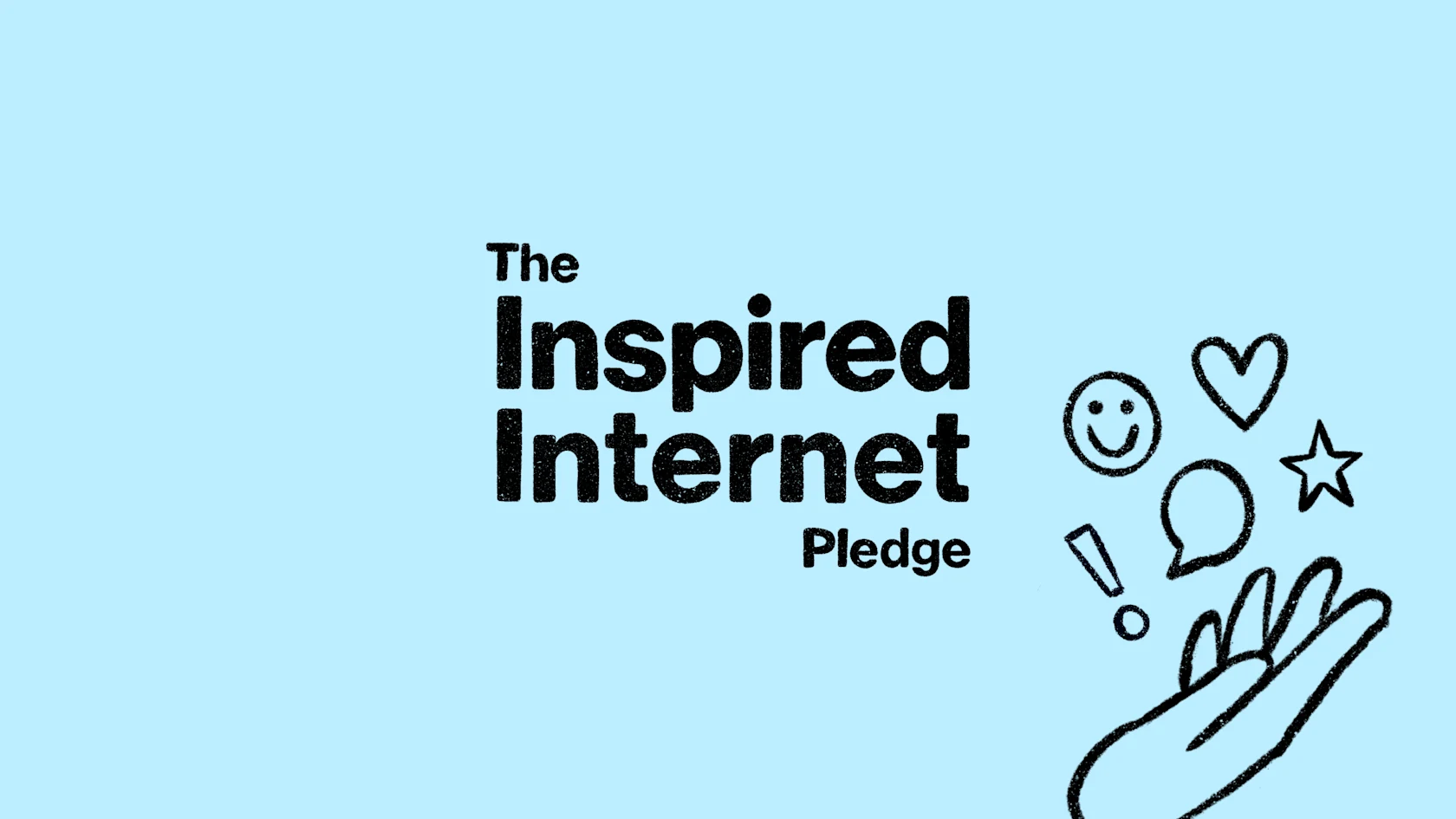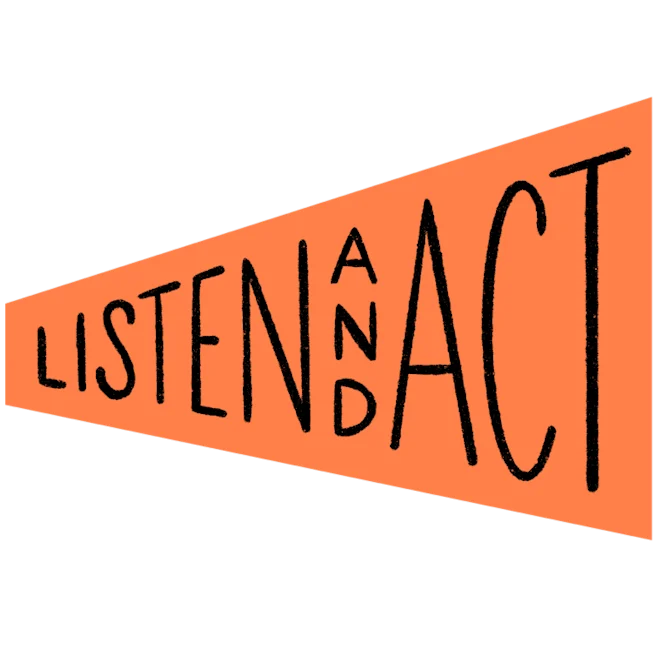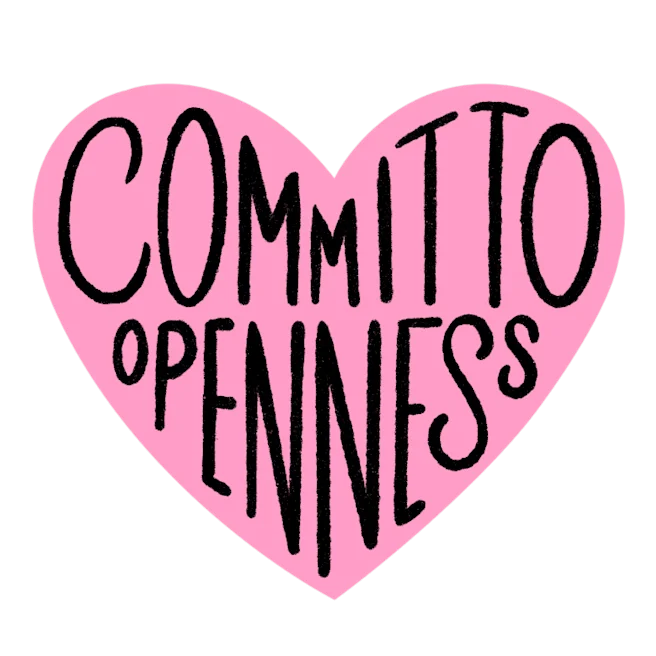Join us in signing the Inspired Internet Pledge
June 20, 2023

The Inspired Internet Pledge: A commitment to making the internet better for all, by companies that fund it.
When social media first appeared, it was all about connection. It helped us find old friends, share family updates and get closer to the people around us. But 20 years later, that connectedness can feel like a distant memory. Social media evolved from a tool that made us feel closer, to something that often makes us feel more alone.
You can see the impact on mental health across generations— and especially for Gen Z. Constant access to social media and other online platforms is creating a crisis in teen mental health, says the US Surgeon General. Study after study shows that Gen Z feels more alone, stressed and disconnected than any generation before it.
So how did we get here? Well: Social platforms put AI in charge of what we see. We stopped getting a chronological feed of what our friends posted, and started getting a feed of what the AI thought we should see. Then, platforms trained the AI to maximize for content views and time spent. It soon figured out that the more enraged we are, the more engaged we are.
This model has proven lucrative for many companies—but it’s disastrous for people’s emotional wellbeing. What comes next is a choice. And we believe it’s time to make a change.
It starts with us
We’re not the first to call for change. Parents, researchers and others have been asking for years. But as a company that builds for the internet, Pinterest has a specific responsibility to help. We believe that the people and platforms who fund the internet are the ones who can fundamentally change it.
Today, Pinterest CEO Bill Ready and CMO Andréa Mallard spoke on the mainstage at the Cannes Lions International Festival of Creativity. They were joined by Dr. Michael Rich, Founder and Director of the Digital Wellness Lab at Boston Children’s Hospital. Together, these three leaders shared a new pledge to make the internet a more positive place.
The Inspired Internet Pledge is a commitment to making the internet a healthier and kinder place for young people. The Pledge outlines specific principles to help companies change how they approach their products, philosophies and operating models.
Pinterest was the first to sign the new Pledge. Now, we’re asking every company with a digital product or service to sign it, too.
How the Pledge works
When you sign, you’re committing to three key principles:

1. Tune for wellbeing: Build your understanding of which actions and content correlate with wellbeing outcomes. Then, use that information to help build and evolve your products—all in an effort to support healthier experiences on and offline.

2. Listen and act: Listen to those who have experienced harm online. Learn from them. Then act on what you learn. You might seek third-party data and guidance from organizations like the Digital Wellness Lab in the US, the Digital Futures Commission in the UK, MediaSmarts in Canada and so many more. Use their insights to create a more supportive environment and increase access to reliable resources for people who have been victimized online.

3. Commit to openness: Share lessons collaboratively across the tech industry. Open source your knowledge, from successes to failures. Mental health is not a competition, and we should all learn together.
A better internet for all
Pinterest collaborated with the Digital Wellness Lab because our missions align so closely. The Digital Wellness Lab believes that it is absolutely imperative that we use science, rather than emotion, to make decisions about the design—and use—of interactive tech and media.
We believe that positive change is possible. Emotional wellbeing needs to be a real, measurable result that’s standard across the entire industry. The Pledge will help us get there, by shifting the focus from tactics to outcomes.
Join us
This pledge is just one step in our mission of making a better internet. Pinterest has long prioritized products and policies that put mental health first. Products like inclusive beauty and skin tone filters help people feel at home on the platform. Meanwhile, we’ve fine-tuned our algorithms to favor positive engagement metrics, rather than clickbait or negative signals.
We don’t always get it exactly right. But we’re committed to doing better, and we’re encouraged that studies show better outcomes are indeed possible.
The Inspired Internet Pledge is the next chapter in our commitment to emotional wellbeing. And we can’t do it alone: We need companies like yours to join us. Sign today, and help us make the internet better for all.


